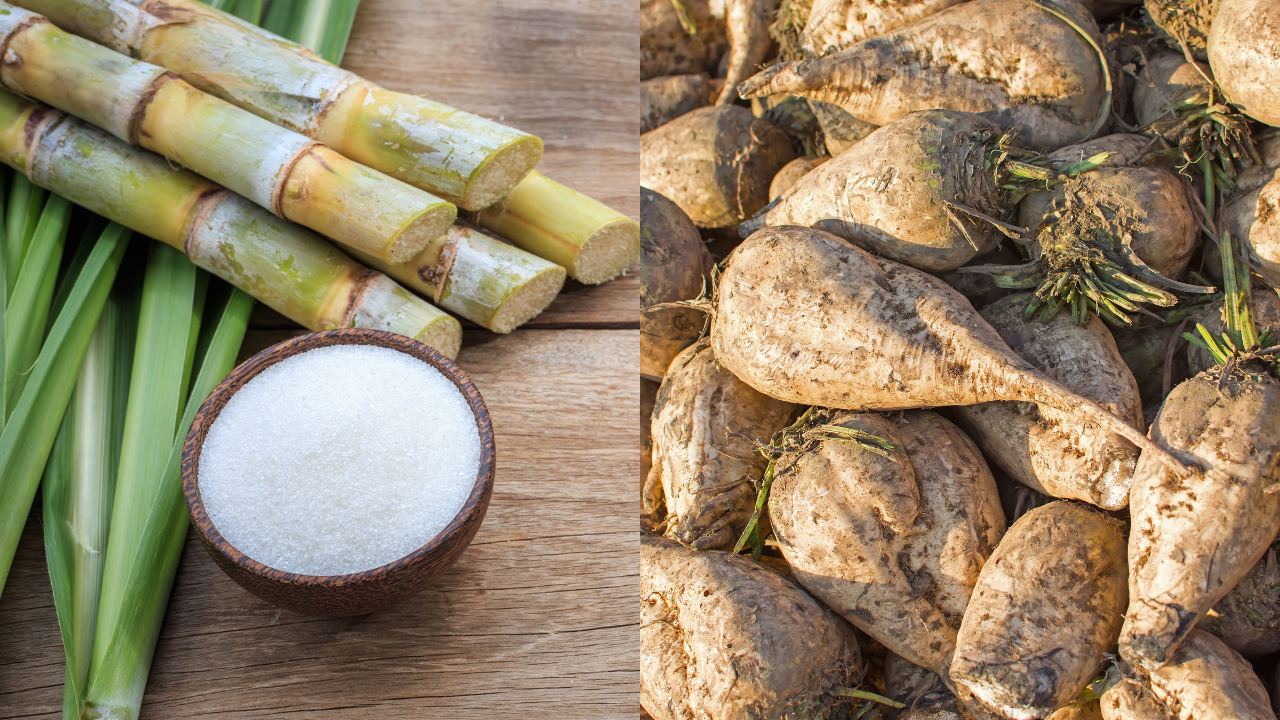Comprehending the Nutritional Benefits of Beet Sugar Vs Walking Cane Sugar for Health And Wellness Conscious Customers
When taking a look at the nutritional implications of beetroot sugar versus walking stick sugar, health-conscious consumers locate that both selections mainly are composed of sucrose and deal similar caloric worths, each adding about 16 calories per teaspoon. Regardless of this resemblance, neither type gives considerable wellness benefits, as they are lacking crucial nutrients. Exploring the more comprehensive impacts, consisting of ecological factors to consider and long-lasting wellness effects of sugar usage, could brighten extra nuanced distinctions in between these two sugars.
Nutritional Profile and Caloric Worth of Beetroot Sugar and Walking Cane Sugar
Although both beet sugar and walking stick sugar are largely made up of sucrose, their dietary profiles and caloric worths are incredibly comparable. Each provides about 16 calories per teaspoon and consists almost entirely of carbs, with marginal quantities of healthy protein or fat. These sugars likewise do not have substantial quantities of vitamins or minerals. The refinement procedure strips away most of the fundamental nutrients, providing both kinds virtually identical in terms of nourishment. There are trace distinctions in the contaminations that stay after handling, which can slightly impact the flavor and color of the sugars, however these are negligible in regards to wellness effect. For customers concentrating on dietary effect, the choice between beetroot and walking stick sugar is a lot more about individual preference or prospective environmental issues as opposed to nutritional differences. Both must be eaten in small amounts within a balanced diet regimen as a result of their high caloric material and absence of important nutrients (beet sugar vs cane sugar).
Environmental Effect and Sustainability of Sugar Production
While the dietary differences between beetroot sugar and cane sugar are minimal, their manufacturing processes offer more substantial differences, specifically in regards to ecological impact and sustainability. Walking cane sugar production typically entails substantial land use and logging, which adds to environment destruction and biodiversity loss. This agriculture is additionally related to high water usage and water pollution due to the overflow of pesticides and plant foods. In contrast, beetroot sugar production commonly needs much less land and can be cultivated in more pleasant climates, which might lower the demand for irrigation and the affiliated water resource deficiency.
Nonetheless, beet farming is not without its environmental challenges; it entails considerable energy inputs, specifically in the northern climates where it is expanded, due to the need for longer home heating periods in sugar processing. Both sugar beet and sugar walking stick sectors are exploring extra visite site sustainable techniques, consisting of plant rotation, natural farming, and enhanced waste administration strategies to minimize these effects.
Health Effects and Recommendations for Sugar Consumption
In spite of their marginal nutritional distinctions, both beetroot sugar and walking cane sugar can have harmful wellness impacts when consumed over. High intake of either kind of sugar adds to an array of health and wellness concerns, including obesity, type 2 diabetes mellitus, and heart condition. Both sugars are pure sucrose and offer no crucial nutrients aside from calories, resulting in fast spikes in blood sugar level degrees upon usage.


Conclusion
